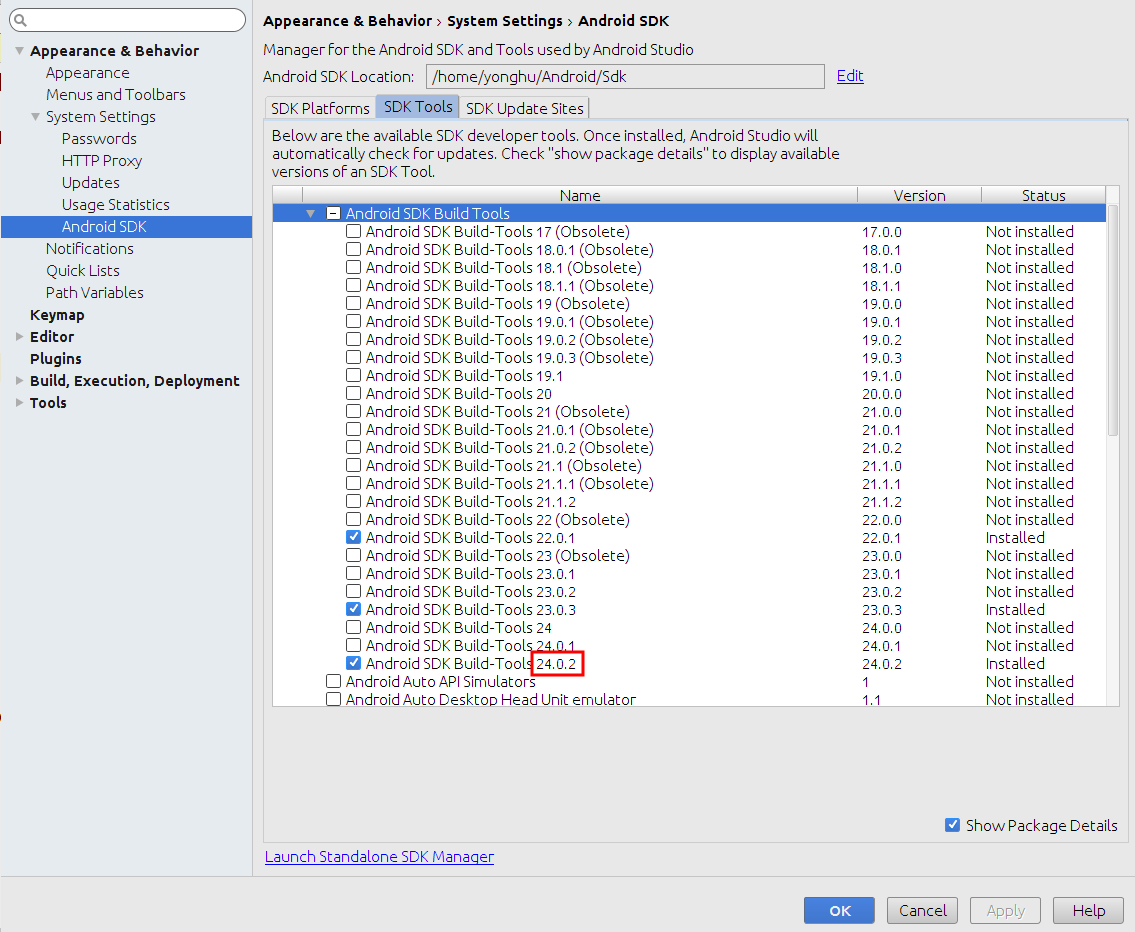I know this is a very rudimentary question, but to my surprise, I could not find any document about Android SDK Build-tools. Besides Android SDK Tools and Android SDK Platform-tools, there are a bunch of Android SDK Build-tools as shown in the appended screenshot. Could anyone point to a source explaining all of them and help clarifying how a certain version of Android SDK Build-tools is picked for use?

Edited (2014-02-27):
I still do not fully understand all the tools. The following is my limited understanding based on Google's latest documents:
- Android SDK Build-tools used to be components of Android SDK Platform-tools. They have been decoupled from Android SDK Platform-tools, so that the build tools can be updated independently of the integrated development environment (IDE) components.
- Android SDK Platform-tools are customized to support the features of the latest Android platform. They are backward compatible so that you always use the latest update of Android SDK Platform-tools even your app targets older Android platforms.
- SDK tools are platform independent and are required no matter which Android platform you are developing on.
I still do not understand the rationale of taking Android SDK Build-tools out of Android SDK Platform-tools which has a single instance and is easy to manage the update. The only possible reason that I can think of is that some apps have to rely on older build components to build them. Google's document mentions this, but does not explain why. Looking at the release notes, you will notice that updates of Android SDK Build-tools are primarily for fixing bugs or/add support for new platforms. The only reason that I can think of for some apps to use older versions of Android SDK Build-tools is that they rely on certain bugs of Android SDK Build-tools. These apps would not function normally without being built with these bugs. I wish Google could explain this better by giving one or two examples showing why these bugs in the tools are critical for certain apps.

